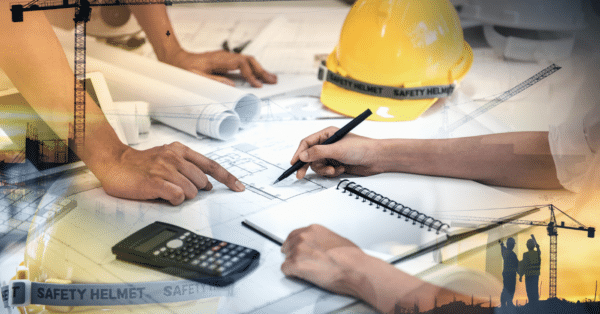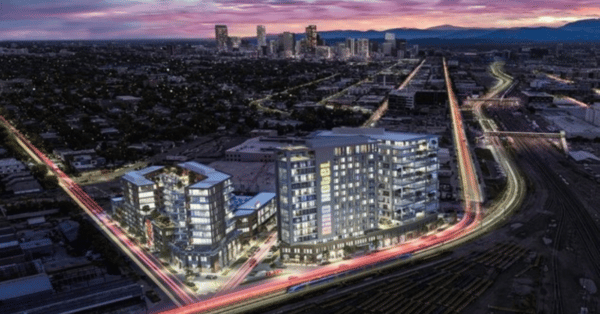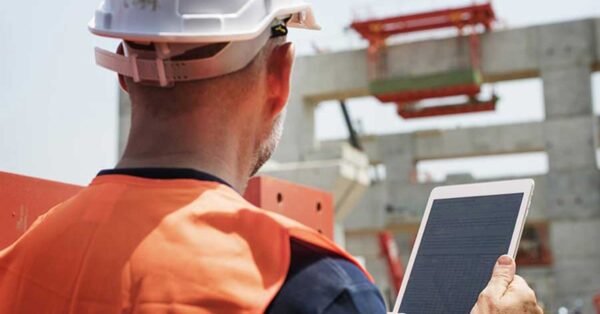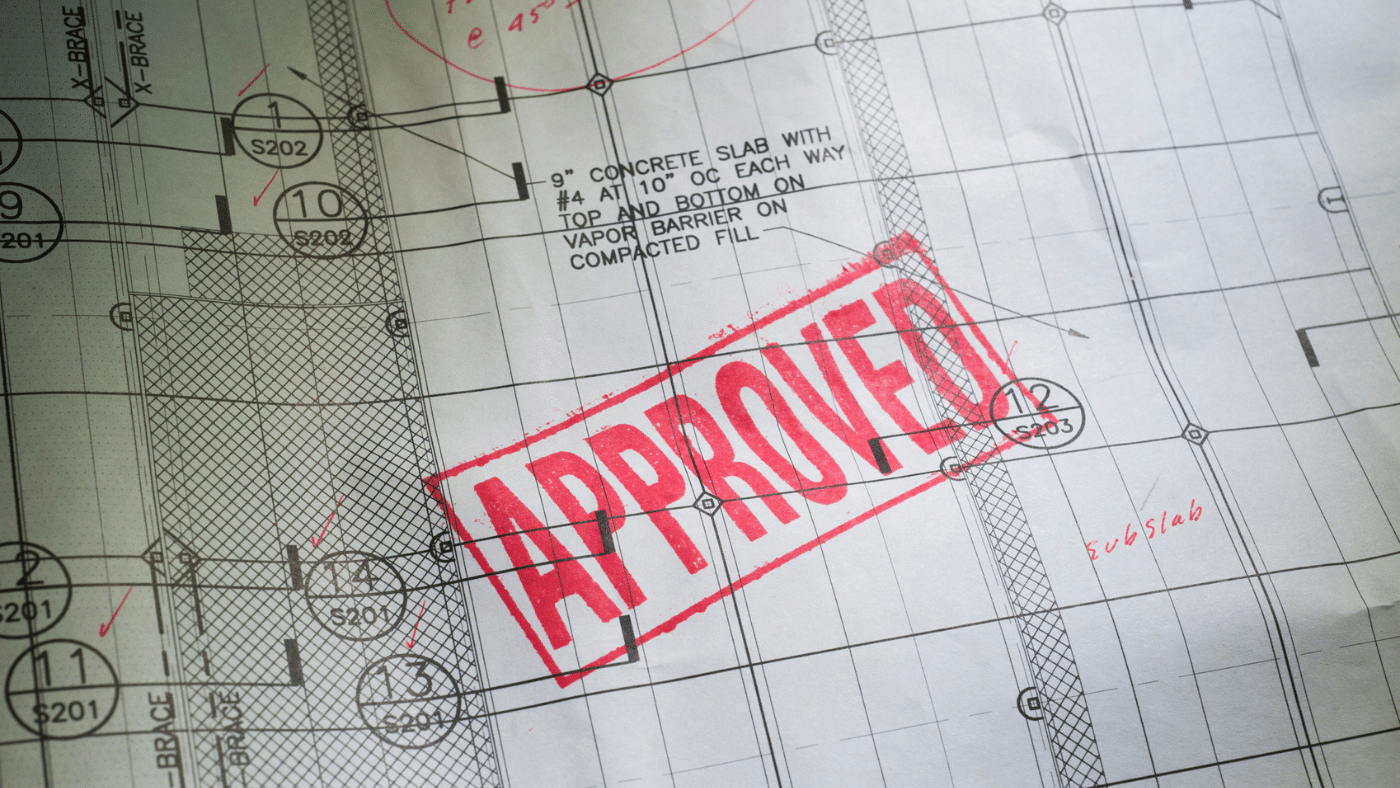Building permits and inspections play a significant role in the construction industry for various reasons. In this post, we describe:
- What a building permit is and the added value to the construction process.
- Provide insight into the multiple stages of the permit process.
- Offer advice on how best to navigate local jurisdictions’ approaches to the building permit process to avoid surprises.
- Discuss the reasons behind the importance of building permits and inspections to contractors and sureties.
The Basics: Building Permits Defined
A building permit can be thought of as an authorization to do specific work in a selected location. A more detailed definition by the International Code Council (ICC) of the International Building Code (IBC 2021) provides a better understanding of what a building permit entails. The ICC is an independent organization dedicated to the development of model codes and standards in the US.
The ICC indicates in Section 105.1 of the International Building Code (IBC 2021) that “Any owner or owner’s authorized agent who intends to construct, enlarge, alter, repair, move, demolish or change the occupancy of a building or structure, or to erect, install, enlarge, alter, repair, remove, convert or replace any electrical, gas, mechanical or plumbing system, the installation of which is regulated by this code, or to cause any such work to be performed, shall first make application to the building official and obtain the required permit.”
In essence, a building permit is a legal authorization, granted by the local building official to perform work as described in section 105.1 of the IBC or the code having jurisdiction in the location of the project. Most jurisdictions in the United States have adopted the ICC codes but some regions make amendments to the code to accommodate local construction practices, climate, and geography. For this reason, it is always a good practice to contact the local building department or permit office to verify local codes governing the region or location where the work will be done.
Building Permit Types
Once the scope of the project is defined, an application to the building department can be submitted to obtain authorization of work. It is important to note that the proposed work under a project may require multiple types of building permits depending on the nature of the building project and local building regulations. According to the ICC, the following are permits generally required in a project:
- New buildings/new construction permit
- Additions (bedrooms, bathrooms, family rooms, etc.)
- Residential work (decks, garages, fences, fireplaces, pools, water heaters, etc.)
- Renovations (garage conversions, basement furnishings, kitchen expansions, reroofing, etc.)
- Electrical systems
- Plumbing systems
- HVAC (heating, ventilating, and air conditioning) systems
- Environmental
- Signage permit
- Fire Safety
- Zoning
The required permits will vary based on the project’s location, size, and complexity, as well as local regulations. As previously indicated, it is essential to consult with the local building authority to determine the specific permits needed for a project in a particular area.
Before a Project Begins: The Building Permit Process
Now familiar with the basics and the types of building permits, it follows that the next step is to apply for a permit for almost anything and everything! Of course, every local building department will have its own permit application process, that is why it is crucial to actively involve the local building authority or permit office to gain a comprehensive understanding of the requirements specific to the jurisdiction. Typically, the permit process proceeds in the following sequence:
- Permit application: The application will indicate details about the project accompanied by drawings, sketches, specifications, and any other required documentation related to the job.
- Permit Review: The building official and associates will review the application and all related documentation.
- Permit Approval: Provided all building department requirements have been satisfied, at this stage, the building official will grant authorization to commence the work upon the specified date.
- On-site visits: Inspections will occur according to a specified timetable to ensure the work performed conforms to the granted local permit, codes, and plans.
- Final Approval: Upon successfully completing the work, the code official will provide a final certification of approval.
While broad, this sequence illustrates the careful approach that building authorities take to ensure the safety and integrity of construction projects of all types.
Why Building Permits and Inspections Matter to the Construction Industry
There are many reasons that building permits and the inspections that follow authorization of a project are important in the construction industry. These include:
- Establishing a legal stance: Building permits ensure the project is built the right way while promoting accountability and durability of the construction project. The permit process makes sure construction projects adhere to governing codes, regulations, and zoning laws in place to protect the public safety, health and wellbeing.
- Enforcing safety standards: Both building officials and inspectors help enforce safety standards to protect the public by identifying potential safety hazards during the inspections conducted during the duration of the project. These professionals ensure the work performed meets specific safety requirements that include, and are not limited to, verification of the structural integrity of the building, fire safety and proper plumbing and electrical systems installation.
- Ensuring quality control and assurance: Inspectors will help maintain quality control during construction by making sure the project adheres to approved plans, specifications and industry best practices.
- Protecting resale value of the structure and the owner: Without proper permitting and inspections, buildings may not be considered compliant with regulations, resulting in challenges in the future. For example, when securing a certificate of occupancy (CO) or insurance for the property, insurance companies may not cover work done without a permit and proper inspection records.
Building permits and inspections contribute to the safety and integrity of the structures in the construction industry.
Why Building Permits and Inspections Matter to the Surety Industry
Similarly, building permits and inspections play a vital role in the surety industry. The sureties provide bonds to guarantee the completion of the construction project. There are different types of bonds offered in the construction industry; the most common are warranty bonds, bid bonds, performance bonds and payment bonds. These bonds provide financial safeguards to the obligee, principal, subcontractors, and suppliers.
Here are the ways in which building permits and inspections help sureties:
- Risk mitigation: Building permits and inspections protect sureties from potential risks because they ensure that projects comply with governing codes and regulations. The proper review by a professional and adherence of the project documents to the local laws and standards will reduce the likelihood of faulty construction that can result in a surety claim. Moreover, permit and inspection documentation can help establish obligations to which the surety bond is tied in the case the contractor fails to meet his duties.
- Risk assessment: Building permits and inspections are a good tool for risk assessment as they provide important information about the project that sureties can utilize for assessment on how best to proceed, prior issuing a bond or at any point during the construction process.
- Contractor qualifications: Building permits reassure the sureties of contractors’ commitment to the parties involved and to the success of the project. It speaks volumes regarding the competence of a contractor when they have taken the necessary steps to ensure that a team of professionals will validate the project’s safety and integrity.
Prior to issuing a bond, inspections are not required because there is nothing to inspect. However, one can immediately understand the value of the right professional for the sureties during the assessment and construction process. For example, inspectors in various fields of the construction sector rank high in importance because it is during these monitoring stages that inspectors validate and enforce compliance with the local codes and standards, enforce safety measures, ensure the quality of the work as well as adherence to the contract documents – all in the interest of promoting public health and safety. The added cost of having a valued professional such as an engineer or team of engineers to support the surety team at this stage is well worth the investment considering the potential perils that might give rise to claims.
In the event of a claim, both permit records and inspection reports provide essential information about the construction process and can help identify the problem(s). For example, if a non-compliance matter or design discrepancy arises, proper documentation of the construction process at various stages of the project helps in the assessment of the responsibilities of the parties involved and facilitates the resolution process. During this time, it is key to have the right team of professionals who can interpret the set of project documents and is able to communicate the findings to the client with ease. It is important to note that the responsibilities of this team in a surety project will vary based on project size, complexity, and contractual agreements. In general, the team’s responsibilities are to provide a thorough assessment, expert advice based on technical expertise, ensure compliance and proper execution of the tasks involved in the project, effectively communicate, and mitigate risks – all contributing the successful completion of the project.
All told, the future success of a construction project – large or small – depends a great deal on the proper filing and documentation of the permit records and inspections of the job. The specific requirements for the building permit and inspections will depend on the location and nature of the project. Ultimately, the permitting process is crucial as it ensures compliance with building codes and regulations; provides safety considerations, professional oversight, and quality assurance; reduces liability; promotes public health; builds public trust for future investments and secures property value.
For more information on how the VERTEX team can help with permits and inspections contact me at wdauhajre@vertexeng.com








